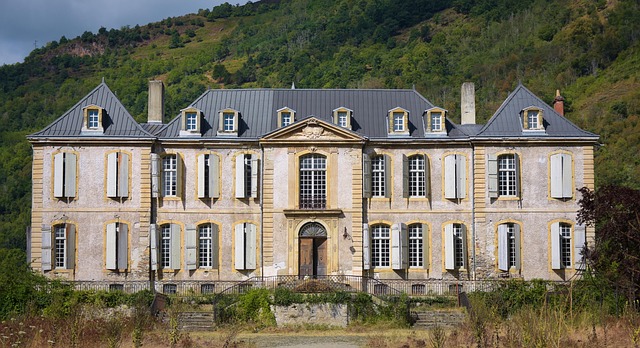Denver's robust emergency response system includes specialized water restoration services that handle minor leaks to severe flooding. Swift action is crucial after water damage; turn off the main supply, evacuate if needed, and protect valuables. Professional Denver Water Restoration experts use advanced tools and knowledge for effective cleaning, drying, mold prevention, and property restoration. Prompt action minimizes damage and downtime for both homes and businesses.
“In the face of unexpected water damage, Denver residents and businesses need swift and reliable emergency response. Understanding the city’s structured approach to such crises is vital. This article explores Denver’s comprehensive water damage emergency response system, offering practical guidance for quick post-disaster steps. We delve into the expertise of professional Denver water restoration experts and provide insights on restoring your property effectively. Get prepared and know exactly what to do with our comprehensive Denver water restoration resources.”
- Understanding Denver's Water Damage Emergency Response
- Quick Steps After Water Damage in Your Denver Home
- The Role of Professional Denver Water Restoration Experts
- Restoring Your Denver Property Post-Water Disaster
Understanding Denver's Water Damage Emergency Response

Denver’s emergency response to water damage is a well-organized and efficient system designed to help residents quickly recover from plumbing leaks, floods, or other water-related disasters. When faced with water damage, time is critical, and Denver’s trained professionals are equipped to handle various scenarios, from small-scale leak repairs to extensive basement flooding. The city offers specialized denver water restoration services, ensuring that homes and businesses are restored to their pre-damaged condition as swiftly as possible.
The process typically begins with a swift assessment to determine the extent of the damage. Once the emergency response team arrives, they employ advanced techniques like drying out drywall after leak denver to prevent mold growth and structural issues. These experts also specialize in denver basement flooding repair, understanding that quick action is vital to saving valuable possessions and minimizing long-term damage.
Quick Steps After Water Damage in Your Denver Home

If you experience water damage in your Denver home, acting swiftly is crucial for minimizing potential harm. The first steps should always be to turn off the main water supply to prevent further leakage and ensure everyone’s safety. Next, begin the process of evacuation if necessary, especially if the water intrusion is substantial. Remove any valuables or important documents from the affected areas to protect them from water damage.
Once immediate safety measures are in place, contact a professional Denver water restoration service like ARC Restoration. They can assess the situation, provide expert advice, and offer solutions tailored to your specific needs. Whether it’s due to a burst pipe, leaky roof, or appliance malfunction, a quick response is key in fixing water damage Denver residents might face. Their team will work efficiently to restore your home to its pre-damaged condition, focusing on both the visible repairs and restoration after pipe burst denver.
The Role of Professional Denver Water Restoration Experts

When facing water damage, whether from a burst pipe, heavy rainfall, or flooding, it’s crucial to turn to professional Denver water restoration experts for immediate and effective solutions. These specialists are equipped with the knowledge and advanced tools needed to mitigate the impact of water intrusion, ensuring your property is restored to its pre-damaged condition. In the event of commercial water damage repair in Denver, their expertise becomes even more invaluable, as they understand the unique challenges that come with restoring businesses and can swiftly coordinate efforts to minimize downtime.
Professional Denver water restoration services extend beyond structural repairs. They also specialize in expert flood clean up Denver, meticulously removing contaminated water, drying out affected areas, and sanitizing spaces to prevent mold growth. Additionally, these experts can help repairing water damaged furniture Denver, salvaging valuable items that hold sentimental or financial significance. Their comprehensive approach ensures a thorough restoration process tailored to your specific needs.
Restoring Your Denver Property Post-Water Disaster

After a water disaster strikes your Denver property, it’s crucial to act swiftly and seek professional assistance for efficient Denver water restoration. The initial step involves assessing the extent of the damage and identifying the source. This is critical as it determines the best approach for restoration services in Denver. Professional restorers have the expertise to navigate through complex situations, whether it’s a burst pipe, leaky roof, or flooding due to severe weather.
They utilize advanced equipment and techniques tailored to various water damage scenarios, ensuring thorough cleaning and drying. For home water damage restoration Denver or commercial water damage repair Denver, the process involves containment, extraction, disinfection, and meticulous drying to prevent mold growth and structural deterioration. Prompt action is key to mitigating losses and restoring your property to its pre-disaster condition.
In conclusion, a swift and effective Denver water restoration is paramount to mitigating damage and ensuring a speedy recovery for your property. By understanding the emergency response process, taking immediate action, and enlisting professional experts, homeowners can navigate challenging situations with confidence. Remember, the key to successful water damage restoration in Denver lies in prompt attention and the expertise of specialized professionals who understand the intricate landscape of Denver’s water restoration services.
